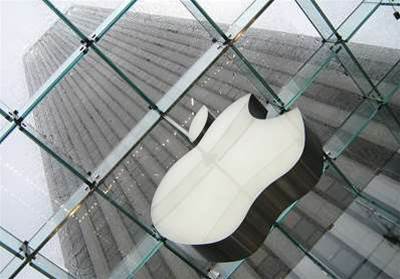Apple has doubled down on its resistance to the US government's attempt to force it to unlock an encrypted iPhone belonging to one of the San Bernardino shooters, arguing for the dismissal of a court order compelling it to act on the grounds that it would violate its free speech rights and blur the lines between courts and Congress.

The US FBI is seeking Apple's help to access shooter Rizwan Farook's iPhone by disabling some of its passcode protections. Apple has pushed back, arguing that such a move would set a dangerous precedent and threaten customer security. US officials disagree.
In a copy of the brief provided by the company, Apple argued the government's request was "unprecedented" and violated the company's First Amendment rights.
Apple's resistance has sparked a national debate about whether the government should have a technological backdoor to get into privately owned phones.
In its filing, Apple raised the spectre of courts ordering it to help in other cases in other ways, such as writing code that would turn on an iPhone microphone to help surveillance.
"This case is not a case about one isolated iPhone," Apple said in the filing, reiterating previous comments.
"Rather, this case is about the Department of Justice and the FBI seeking through the courts a dangerous power that Congress and the American people have withheld: the ability to force companies like Apple to undermine the basic security and privacy interests of hundreds of millions of individuals around the globe."
It argued use of any court-approved backdoor would not be a one-off.
"The government says "just this once” and “just this phone," Apple wrote.
"But the government knows those statements are not true; indeed the government has filed multiple other applications for similar orders, some of which are pending in other courts. And as news of this court’s order broke last week, state and local officials publicly declared their intent to use the proposed operating system to open hundreds of other seized devices—in cases having nothing to do with terrorism.
"If this order is permitted to stand, it will only be a matter of days before some other prosecutor, in 8 some other important case, before some other judge, seeks a similar order using this case as precedent.
"Once the floodgates open, they cannot be closed, and the device security that Apple has worked so tirelessly to achieve will be unwound without so much as a congressional vote."
Government officials have rejected that characterisation and earlier today FBI Director James Comey told a congressional panel that court approval of the FBI's request was "unlikely to be a trailblazer" in other cases.
While the case "will be instructive for other courts," larger policy questions about reasonable law enforcement access to encrypted data will likely need to be resolved by Congress and others, Comey said.
Microsoft lends its support
Apple appears to be gaining support for its position among its technology peers.
Microsoft’s head legal officer, Brad Smith, today told a congressional hearing his company believed Apple was “making an important point” and pledged to support its rival in court.
“We at Microsoft support Apple and will be filing an amicus brief to support Apple’s position in the court case next week,” Smith said.
Microsoft is currently embroiled in a privacy battle with the US government over access to user data stored in Ireland.
Smith argued courts should not seek to resolve 21st century technology issues with law written in the early 1900s. The US Department of Justice's court order against Apple relies on the 1911 All Writs Act.
At the hearing, Californian Democrat representative Zoe Lofgren said the newly-inked Trans-Pacific Partnership specifically “prohibits governments from requiring companies to either disclose or to use specific cryptographic algorithms".
“It basically says that you cannot require a backdoor in encryption if you’re party to this agreement,” Lofgren said.


_(23).jpg&h=140&w=231&c=1&s=0)








 iTnews Executive Retreat - Security Leaders Edition
iTnews Executive Retreat - Security Leaders Edition
 iTnews Benchmark Awards 2026
iTnews Benchmark Awards 2026
 iTnews Cloud Covered Breakfast Summit
iTnews Cloud Covered Breakfast Summit












_(1).jpg&h=140&w=231&c=1&s=0)



